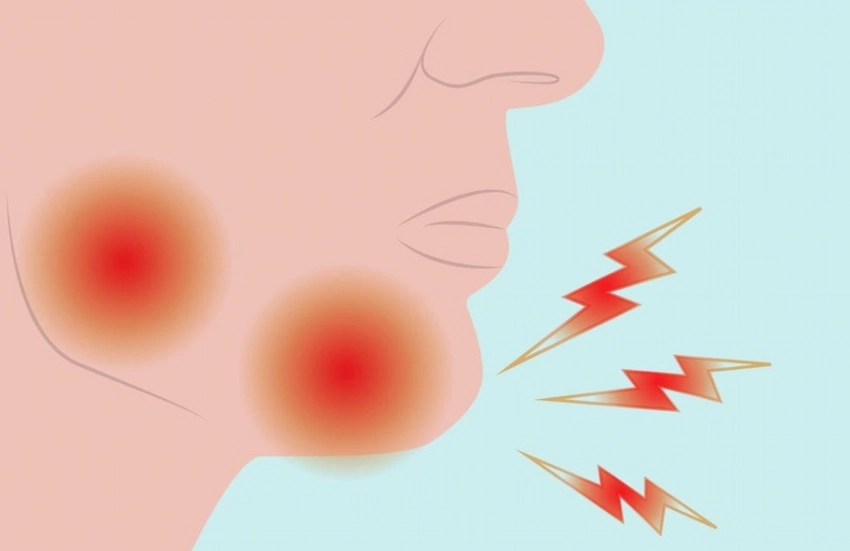🦷Jaw Pain After Tooth Extraction: Why?

So, you got a tooth removed, and now you have to endure a painful jaw? You are definitely not alone. Jaw pain after tooth extraction is quite common, particularly if one had removed wisdom teeth or the procedure was of a little more involved nature than usual. You will often see such cases at Lema Dental Clinic, and the good thing is that you can typically handle your pain with a bit of attention to and patience with the issue.
Why Does Jaw Pain After Tooth Extraction Happen?
There are quite a few factors that may cause your jaw to be sore after a tooth removal. Whilst pulling the tooth, your mouth was possibly left open for long which led to the pressure on the jaw muscles and joints.
The stiffness-soreness you are experiencing? it’s the same as muscle soreness you might get even after a workout but now it’s your face creating the muscle. Furthermore, the dentist might have had to exert pressure when removing the tooth. Usually, molars or impacted teeth require some effort and sometimes pressure can be felt in the jawbone as a result.
Inflammation also significantly contributes to the whole picture. Your body normally sends white blood cells alongside some fluids to the location to hasten the healing of the affected part. However, there are instances when the area gets swollen and that might be the cause of the problem as it can put pressure on nerves or tissues and that can result in pain other than the one in the tooth socket.
It’s also possible that the clot that protected your healing gum was displaced which is described as a dry socket — this event means that the nerves are exposed and send sharp pain from the jaw to the inner ear or the temple. In short, jaw pain after tooth extraction has more than one root cause, and if more than one is at play simultaneously, it would be highly noticeable.
How Long Will the Pain in the Jaw Remain?

The swelling and soreness during the first two to three days are natural symptoms after the surgery. It usually takes the pain in the jaw about a week to completely vanish, but some sensitive parts may still be there if removal was more complex or the TMJ was agrave; little shortened. Nevertheless, if the pain becomes more severe after the third or the fourth day or multiplies to the whole face, then you should be aware of the possibility that something goes wrong.
What to Do for TMJ Pain After Tooth Extraction?
There isn’t any other better work to do when experiencing a sore jaw than to reach for something cold or just lay down and relax your head. So the cold compress is a good start. When applied in the first two days of treatment, it is known to help with the swelling and make it less painful.
Your next move is warm compress aids that encourage the muscle tension to decrease. You- performing such a light-hearted act with your mouth-talking less, not making wide yawns, and even eating soft foods only will be very soothing for you. Moreover, chewing on the other side of the painful area is quite an effective therapy.
At Lema Dental Clinic, if we ever get the chance, we advise our patients to perform the following steps: not only do they need to rest, but after that, they also need to do gentle jaw massages. Over-the-counter pain medication may be an option for you depending on what your dentist has agreed on.
Communicate with your dentist and see if over-the-counter medications could be the right thing for you. Also, you must remember that if the pain is due to muscle tension instead of a sharp, prolonged pain, your jaw joint could be overstrained, therefore after some rest, it should get better by itself.
Is the Occurrence of Jaw Pain After Tooth Extraction of Concern?

The majority of the time, one gets jaw pain after tooth extraction which is a normal part of the process of recovery. Still, one has to be careful because there are certain things to take notice of to avoid complications. If the pain becomes more acute and persistent, then it may be a sign of trouble. Additionally, if you notice symptoms such as a rise in body temperature or the appearance of an unpleasant taste in your mouth, these are more likely a sign of infection. Equally, your jaw that locks itself, or the act of opening the mouth becomes difficult will serve as the alarm that you are in trouble with your temporomandibular joint.
The problem of dry socket, not so easy to address, is caused when the blood clot that was at the extraction site gets dislodged prematurely. The result is that the exposed nerves come into contact with food, air, and fluid leading to severe throbbing pain extending to ear and jaw areas. To the patient, it is not deadly, but quick treatment is necessary, and only professionals can deliver the remedy.
Preventing jaw pain is after tooth extraction starts before your tooth extraction procedure. At Lema Dental Clinic, we use precise, minimally invasive tactics in our operations that not only reduce trauma to the jaw but also to the surrounding tissues. However, what you do after the appointment is just as important. In the first few days, keeping your mouth clean, not using straws and cigarettes and avoiding tough foods, would all have a huge impact on your jaw. If you give your mouth time to heal, it will be the most peaceful way to avoid unnecessary pain in the future.
FAQs About Jaw Pain After Tooth Extraction
Yes, it’s quite common. Your jaw muscles and joints are under stress during the procedure, especially if your mouth was open for a long time.
Most people feel relief after a few days, but depending on the complexity of the procedure, jaw pain can last up to two weeks.
Yes, especially if the pain is sharp, throbbing, and starts a few days after the extraction. It often spreads to the jaw, ear, or temple.
Contact your dentist right away. Increasing pain might mean infection, dry socket, or TMJ issues that need professional treatment.
Not necessarily. Mild soreness is part of healing. But if it’s intense, long-lasting, or affecting how you eat and speak, it’s worth checking out.




